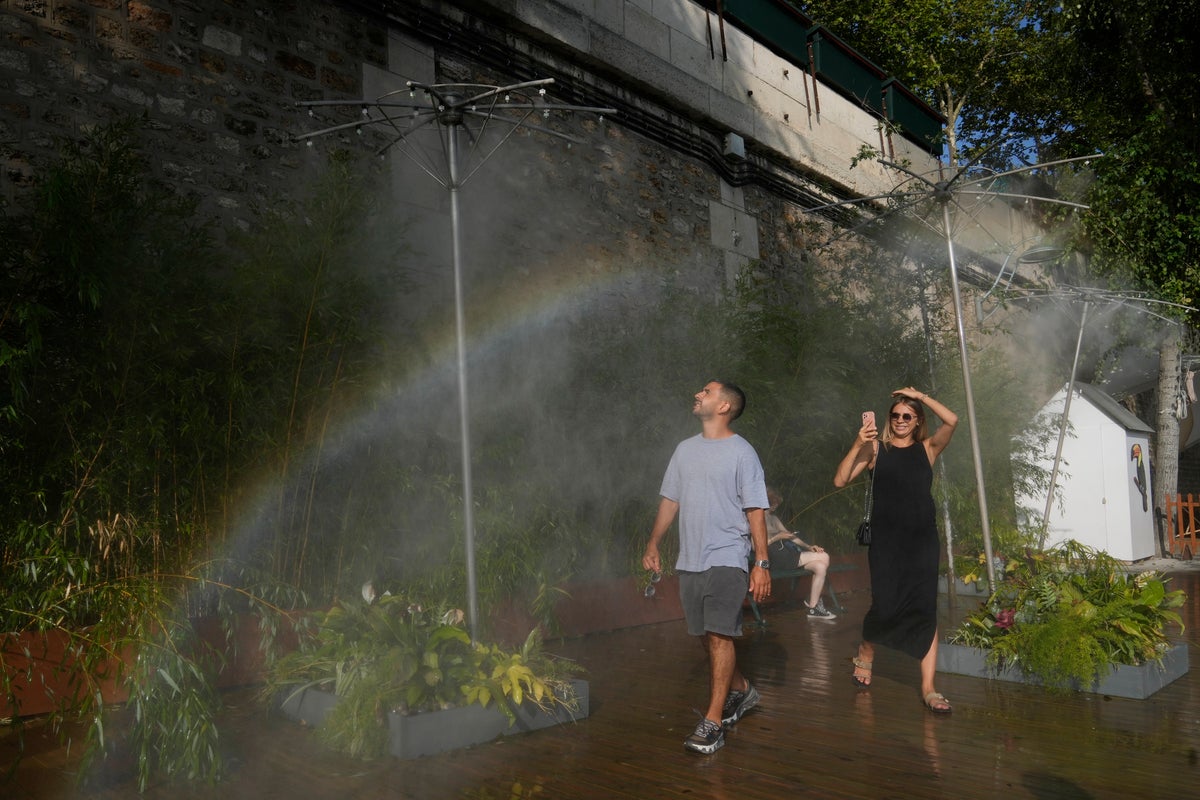Your support helps us to tell the story
From reproductive rights to climate change to Big Tech, The Independent is on the ground when the story is developing. Whether it’s investigating the financials of Elon Musk’s pro-Trump PAC or producing our latest documentary, ‘The A Word’, which shines a light on the American women fighting for reproductive rights, we know how important it is to parse out the facts from the messaging.
At such a critical moment in US history, we need reporters on the ground. Your donation allows us to keep sending journalists to speak to both sides of the story.
The Independent is trusted by Americans across the entire political spectrum. And unlike many other quality news outlets, we choose not to lock Americans out of our reporting and analysis with paywalls. We believe quality journalism should be available to everyone, paid for by those who can afford it.
Your support makes all the difference.Read more
A blistering heatwave gripped southwest France on Monday, sending thermometers soaring to 43 degrees Celsius (109.4 Fahrenheit) in parts of the Charente and Aude.
In Aude, a patchwork of vineyards and Mediterranean scrubland, hundreds of firefighters remained on the hillsides guarding the edges of a massive blaze that scorched 16,000 hectares last week. Officials say the flames are under control, but warn the fire will not be fully extinguished for weeks, with hot spots still smoldering.
The national weather authority, Meteo-France, placed 12 departments on red alert, France’s highest heat warning, anticipating exceptional heat stretching from the Atlantic coast to the Mediterranean plains. Forty-one other departments were under lower-level orange alerts, as was the neighboring microstate of Andorra, between France and Spain.
Social media images showed shuttered streets in Valence, residents shielding windows with foil to reflect the light, and tourists huddling under umbrellas along the Garonne in Toulouse. Across the south, café terraces stood empty as people sought cooler corners indoors.
The red alert has been issued only eight times since it was created in 2004 after a deadly summer the year before. It is reserved for extreme, prolonged heat with major health risks and the potential to disrupt daily life. The designation gives local officials powers to cancel outdoor events, close public venues and alter school or summer camp schedules.
The heatwave, France’s second of the summer, began Friday and is expected to last all week, carrying into the Aug. 15 holiday weekend. It is already pushing northward, with 38 C (100.4 F) forecast in the Centre-Val de Loire region and up to 34 C (93.2 F) in Paris.
